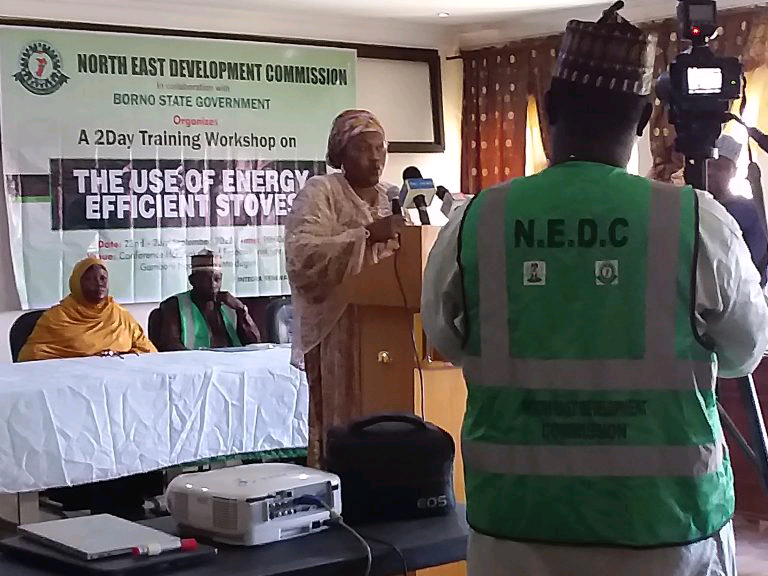By Yakubu Uba
The North-East Development Commission (NEDC) has begun a two-day training of 300 rural women on using energy-efficient stoves in the region.
The Managing Director of the Commission, Mohammed Alkali said this at the inauguration of the training exercise on Thursday in Maiduguri.
He said that 50 women were been selected to participate in the exercise in Adamawa, Bauchi, Borno, Gombe, Taraba and Yobe.
Alkali said the exercise was being conducted simultaneously as part of effort to enlighten the public on dangers associated with felling of trees as well as encourage use of energy-efficient stoves to mitigate effects of climate change.
According to him, the North-East region exemplifies typical extreme case of the country’s version of climate change, reveling in ecological imbalance accompanied by devastating consequences.
He said the region has been grappling with an unprecedented number of “climate induced migrations” occasioned by the multifaceted effects of climate change.
The NEDC boss listed the effects to include desertification, drought, flood and shrinkage of the Lake Chad basin – which put the region in a dire strait.
“We are seeing the effects of climate change that has exacerbated different conflicts in the North-East from the insurgency to communal conflicts over the years.
“The drying up of the Lake Chad, the southward expansion of the Sahara Desert, floods being experienced across many states, menace of the herdsmen/farmer clashes necessitated by the diminishing availability of forests and grazing lands, are all obvious problems associated with climate change in the region,” he said.
Also speaking, Hajiya Falmata Mustapha, a Director in the Lake Chad Research Institute, said the women would be sensitised on effects of climate change and how use of energy-efficient stoves.
She said the participants would be provided with fuel-efficient stoves at the end io the exercise, adding that it was designed with 43 per cent thermal efficiency.
The Director urged Borno government and other stakeholders to work towards enhancing access to energy-efficient stove to control environmental pollution and deforestation.
One of the beneficiaries, Talatu Dibal lauded the gesture, adding that it had exposed them to understanding dangers associated and how to mitigate its impact on the environment. (NAN)




